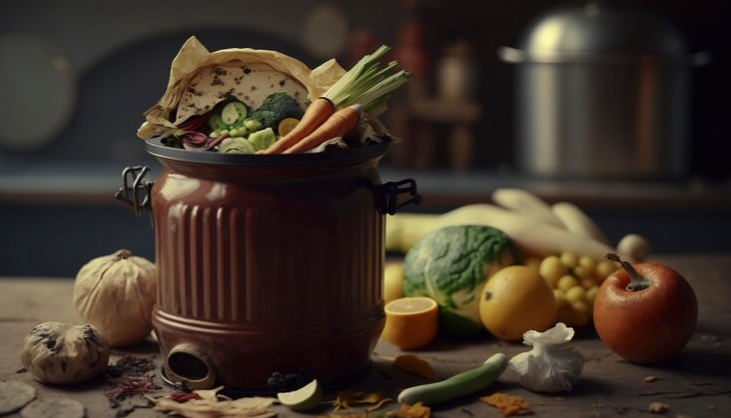In a world where food is abundant, it’s easy to overlook the alarming amount of food waste generated daily. The United Nations estimates that approximately one-third of the food produced for human consumption is wasted globally. Not only does this contribute to environmental issues, but it also strains our wallets. The good news is that there are simple yet effective ways to reduce food waste and save money in the kitchen. Let’s explore some practical tips to transform your kitchen into a hub of thriftiness.
1. Embrace the Leftovers Lifestyle
Despite the common criticism of leftovers, they represent a valuable asset in reducing food waste and saving money. Get creative with repurposing last night’s dinner into a new and exciting dish. For example, turn roasted vegetables into a frittata or transform cooked rice into flavorful fried rice. Not only will this cut down on waste, but it also saves you from spending on a new meal.
2. Smart Storage Solutions
Proper storage is critical to preserving the freshness of your ingredients. Invest in airtight containers to store leftovers, fresh produce, and pantry staples. Labelling containers with expiration dates can help you track what needs to be used first. Additionally, storing fruits and vegetables in the right conditions, such as in the refrigerator or at room temperature, can extend their shelf life.
3. First In, First Out (FIFO)
Implementing the FIFO method in your kitchen can be a game-changer. Arrange your pantry and refrigerator so that older items are placed in the front and newer ones at the back. This ensures that you use up the older products first, reducing the risk of them going bad before you get a chance to enjoy them.
4. Portion Control
Overestimating portions can lead to well-spent leftovers. Be mindful of portion sizes when cooking, especially for ingredients with a limited shelf life. If you have extra portions, consider freezing them for later use. This prevents waste and provides convenient, ready-to-eat meals on busy days.
5. Composting
Consider composting your kitchen scraps when all else fails. Engaging in composting provides an environmentally friendly means of discarding food waste while generating nutrient-rich soil for your garden. Convert items such as fruit and vegetable peels, coffee grounds, and eggshells into valuable compost, steering clear of adding to landfill waste.
6. Buy in Bulk Wisely
While buying in bulk can save money, it’s essential to do so wisely to avoid food waste. Purchase non-perishable items in larger quantities, such as rice, pasta, and canned goods. However, be cautious with perishable items, as buying in excess may lead to spoilage before using them. To prevent wastage, contemplate sharing bulk purchases with friends or family members.
7. Revitalise Stale Bread
Don’t let stale bread become a kitchen casualty. Rather than throwing it away, repurpose stale bread into delightful croutons, breadcrumbs, or savoury bread pudding. Stale bread is a versatile ingredient, elevating the texture and flavour of various dishes and providing a second life to what could have otherwise been thrown away.
8. Learn Expiration Dates
Understanding expiration dates is crucial for minimising food waste. Familiarise yourself with different date labels, such as “sell by,” “use by,” and “best before.” These dates indicate peak quality, not necessarily safety. Trust your senses – if a food item looks and smells fine, it’s likely still safe to consume, even if it’s past the printed date.
9. Participate in Community Programs
Many communities have programs that facilitate the sharing of excess produce and food items among neighbours. Joining or initiating a local food-sharing program can help create a sense of community while minimising individual food waste. It’s a win-win situation that fosters neighbourly connections and promotes sustainability.
Conclusion
Reducing food waste doesn’t just benefit the environment; it also puts money back in your pocket. Transforming your kitchen into an eco-friendly and cost-effective haven is achievable through thoughtful meal planning, welcoming leftovers, utilising advanced storage solutions, implementing the FIFO method, managing portions, and contemplating composting. Let’s consciously appreciate the resources on our plates and wallets, one meal at a time.
